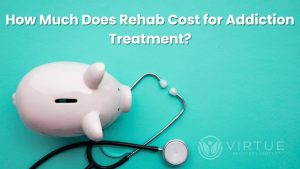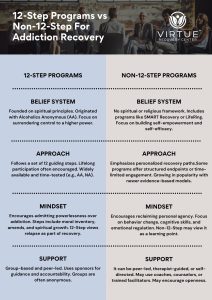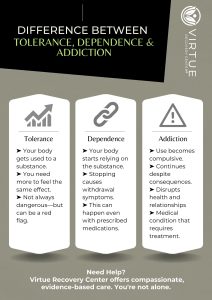Key Takeaways
- Loneliness and social isolation are significant factors contributing to addiction and substance abuse.
- Humans are social creatures, and lacking social connections harms mental and physical health.
- Building social bonds and accessing professional addiction treatment are crucial to breaking the cycle of isolation and addiction.
Introduction
Loneliness and isolation are challenges that affect millions of people worldwide. While everyone experiences these feelings occasionally, long-term isolation can lead to severe consequences for mental and physical health. For many, the emotional pain of loneliness becomes overwhelming, leading them to seek relief through drugs or alcohol.
Substance abuse and isolation often feed into each other, creating a cycle that is difficult to break. Understanding how loneliness contributes to addiction is an important step in developing strategies for recovery.
The Connection Between Isolation and Addiction
Humans are inherently social beings. Our relationships and connections to others provide emotional support, a sense of belonging, and even a purpose in life. When these connections are absent, loneliness and isolation can take hold.
Loneliness is not just a fleeting emotion; it’s a profound sense of being disconnected from others. Social isolation, on the other hand, refers to a lack of interaction with family, friends, or community. Both loneliness and isolation increase the risk of developing mental health challenges, including anxiety and depression. For some, these feelings make them more vulnerable to substance use.
When people feel socially isolated, they may turn to substances as a way to fill the void. Drugs or alcohol can provide temporary relief from emotional pain, but over time, they only deepen the problem by further isolating the individual.
Why Loneliness Fuels Substance Abuse
Loneliness and substance abuse are often linked because of how people cope with emotional pain. For some, using drugs or alcohol offers an escape, even if only for a short time.
Substances can dull the sting of loneliness or help mask underlying mental health issues like depression. However, this relief comes at a cost. Substance use often leads to dependency and addiction, which can create even more barriers to forming meaningful connections.
The Data Behind the Connection Between Social Isolation and Addiction
Studies have shown that individuals experiencing social isolation are more likely to engage in substance use. For example, people with limited social support systems are at higher risk for developing alcohol or drug dependency. This connection highlights the importance of addressing loneliness when treating addiction.
The Impact of Isolation on Mental Health and Drug Addiction
Isolation doesn’t just lead to addiction; it also worsens the emotional struggles that accompany substance use. Being socially disconnected can make individuals feel unworthy of help or incapable of change.
This sense of hopelessness often pushes people further into addiction. They may avoid seeking support, try to hide their substance use, or withdraw from relationships to protect their secret. Unfortunately, this deepens their isolation, creating a destructive cycle that’s hard to escape.
The mental health toll of isolation is profound. Anxiety, depression, and chronic stress are common among those who are socially isolated. These conditions are also risk factors for substance abuse, creating a direct link between mental health and addiction.
Breaking the Cycle: The Role of Social Bonds in Recovery
Rebuilding social bonds is a critical part of addiction recovery. Healthy relationships provide emotional support, encouragement, and accountability. For many, the journey to recovery begins with reconnecting to a supportive community.
How Social Connection Helps Loneliness and Addiction
Social connections reduce feelings of loneliness and offer a sense of purpose. Whether it’s through family, friends, or peer support groups, having people who care can motivate individuals to stay on the path to recovery. These relationships also provide a buffer against stress, reducing the risk of relapse.
Activities that foster connection, like volunteering or joining group therapy, can help individuals break free from isolation. Participating in structured programs can also help rebuild trust and confidence in social interactions.
Comprehensive Treatment for Addiction and Isolation
Addiction recovery requires more than just addressing substance use. It involves tackling the underlying issues contributing to the problem, including loneliness and isolation.
Residential Treatment Programs
Residential treatment centers offer a supportive environment where individuals can focus on recovery. These programs provide a sense of community, helping participants feel less alone in their struggles. Group therapy sessions foster connections among peers who share similar experiences.
Therapy and Counseling
Individual therapy helps individuals understand the root causes of their isolation and addiction. It also teaches strategies for rebuilding relationships and forming healthier connections.
Support Groups
Programs like Alcoholics Anonymous (AA) and Narcotics Anonymous (NA) create spaces where individuals can share their experiences and find support. These groups emphasize the power of connection in overcoming addiction.
By addressing both addiction and the emotional pain of isolation, comprehensive treatment programs help individuals achieve lasting recovery.
Conclusion
Loneliness and isolation are potent forces that fuel addiction. These feelings not only make individuals more vulnerable to substance abuse but also create barriers to recovery. Breaking the cycle requires understanding the role of social connection and seeking professional help to rebuild those bonds.
Recovery is not just about quitting substances; it’s about rediscovering the joy of connection and community. If you or a loved one is struggling with addiction and isolation, help is available. Call Virtue Recovery Las Vegas at 866-520-2861 today to begin your journey to healing and reconnection.
FAQs About Loneliness and Addiction
How Do Loneliness and Isolation Contribute to Addiction?
Loneliness and isolation create emotional pain, leading individuals to use substances to cope or numb their feelings.
Can Social Connections Help in Addiction Recovery?
Yes, building healthy relationships provides support, encouragement, and accountability, all of which are vital for lasting recovery.
What Are the Mental Health Effects of Loneliness?
Loneliness often leads to anxiety, depression, and stress, which are factors that increase the risk of addiction.
How Can Treatment Address Both Addiction and Isolation?
Comprehensive programs include therapy, group support, and activities that promote social interaction and emotional resilience.
Where Can I Find Help for Addiction and Loneliness?
Virtue Recovery Las Vegas offers compassionate care for both addiction and isolation. Call 866-520-2861 for support today.
What Are The Mental Health Effects of Addiction and Isolation?
Addiction and isolation often reinforce each other, leading to increased depression, anxiety, and feelings of hopelessness. The lack of social support can intensify emotional struggles, making it harder to seek help or break free from the cycle of addiction.
Is There A Link Between Isolation and Drug Addiction?
Yes, isolation is strongly linked to drug addiction as it often creates feelings of loneliness and despair that drive substance use as a coping mechanism. Additionally, addiction can push individuals further into isolation, worsening the cycle.
Does Isolation Affect Opioid Use Disorder?
Isolation can worsen opioid use disorder by increasing feelings of loneliness and reducing access to support networks. Without a community or accountability, individuals may feel more tempted to misuse opioids and struggle to seek help.
Are Humans Social Creatures?
Yes, humans are inherently social creatures who thrive on connection, relationships, and a sense of belonging. Prolonged isolation can harm mental and emotional well-being, underscoring the importance of community and social interaction.
How Does Social Isolation Lead to Addiction and Substance Abuse?
Social isolation creates emotional pain and stress, leading some individuals to use substances as a form of self-medication. Over time, this behavior can develop into addiction, especially without social support or coping mechanisms.
How Does Social Isolation Affect Stress?
Social isolation increases stress levels by removing emotional outlets and support systems. It can trigger chronic stress responses, impacting mental and physical health and making individuals more vulnerable to harmful coping mechanisms like substance use.
Can Social Isolation Cause Trauma?
Yes, prolonged social isolation can cause trauma by fostering feelings of abandonment, rejection, and helplessness. For some, it can lead to long-term psychological effects such as depression, anxiety, or post-traumatic stress disorder (PTSD).
Is Social Isolation The Same Thing as Loneliness?
No, social isolation refers to a lack of physical connection or interaction with others, while loneliness is the emotional experience of feeling disconnected. Someone can feel lonely even in a crowd or socially isolated without feeling lonely.
Is Social Connectedness Declining in The USA?
Yes, studies indicate that social connectedness is declining in the USA, with fewer people reporting close friendships and meaningful connections. This trend can contribute to increased loneliness, mental health issues, and substance use disorders.
Resources
https://pmc.ncbi.nlm.nih.gov/articles/PMC4295122/
https://www.sciencedirect.com/science/article/pii/S2352853218302268
https://academic.oup.com/scan/article/16/7/645/6157894?login=false













